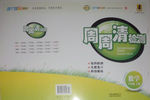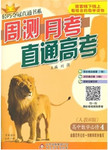题目内容
根据短文内容,从短文后的选项中选出能填人空白处的最佳选项,选项中有两项为多余选项。
Everyone can benefit from making an effort to practice gratitude(感激)every day. The following three steps can help you start feeling more grateful, and appreciative of the good things in your life:
Notice the Good Things in Your Life
1. Pay attention to the small everyday details of your life-nature, people, community, shelter, creature comforts like a warm bed or a good meal. And then start a gratitude journal. Making a commitment to writing down good things each day makes it more likely that we will notice good things as they happen.
Enjoy the Feeling of Gratitude
There are moments when you naturally, right then and there, feel filled with gratitude. These are moments when you say to yourself, "Oh, wow, this is amazing! "or "How great is this!"Pause. 2. Let it sink in . Enjoy your blessings in the moment they happen.
Express Gratitude
Expressing gratitude is more than being polite. 3. Show your appreciation to someone who really did something nice. Say: "It was really kind of you to…,” "You did me a big favor when...," or "Thank you for being there when...". 4. Hold the door open for the person behind you, even if it means waiting a little longer than you normally would.
True gratitude doesn't leave you feeling like you owe other people something-after all, if you've done someone a favor, you probably don't want the person to feel like you expect something back in return. 5.
A. It's about showing your heartfelt appreciation.
B. Notice and absorb that feeling of true gratitude.
C. You can also express gratitude by doing a kindness.
D. It's all about feeling good and creating a cycle of good.
E. Start to notice and identify the things you are grateful for.
F. Help someone without letting the person find out it was you.
G. It's amazing what you notice when you focus on feeling grateful.
 周周清检测系列答案
周周清检测系列答案 轻巧夺冠周测月考直通高考系列答案
轻巧夺冠周测月考直通高考系列答案
